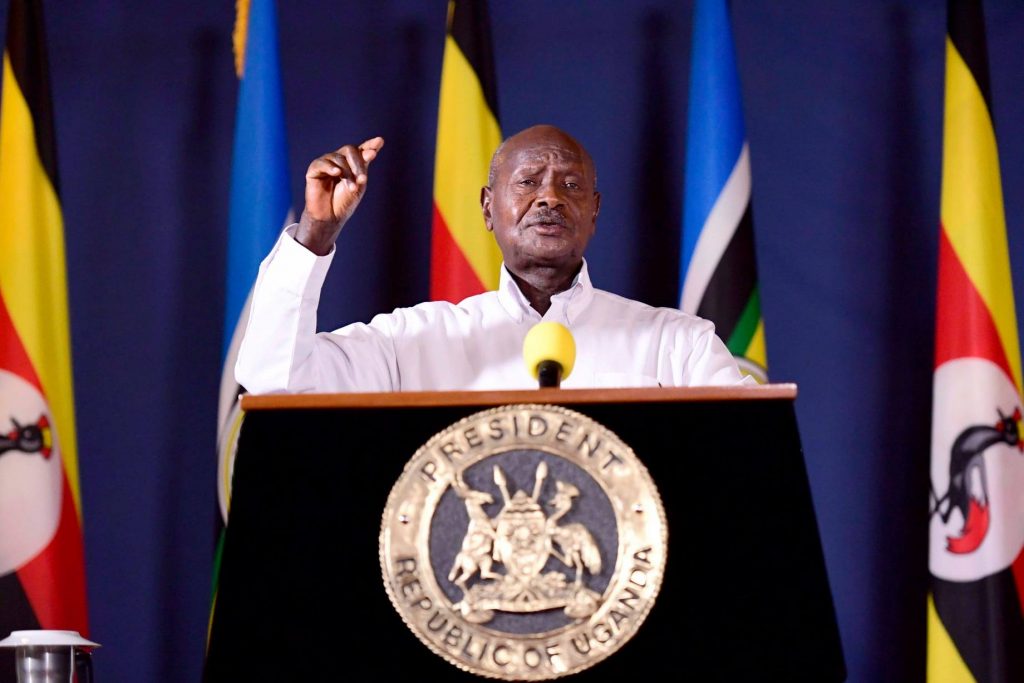Kampala terrorist attack: Suicide bombers targeted the Ugandan capital Kampala killing at least three people and injuring more than 30 others, police inform media. We cover how Ugandans are coping with the suicide bombings and what their president had to say.

It was reported that that three attackers on motorbikes blew themselves up near parliament and the city’s police headquarters.
The reported number of deaths is to rise with the blast leaving body parts strewn in the streets.
Who was behind the attack?
The Islamic State (IS) group confessed to being behind the attack, the militants’ Amaq News Agency reports.
The bomb attacks came within three minutes of each other and other bombs planted within the city were also found. Police spokesman, Fred Enanga, said that the bomb threats are still active – especially from suicide attackers.
“We believe there are still more members of these domestic terror cells, especially the suicide bomb squad that has been created by the ADF.”
A fourth attacker has been arrested and an explosive vest recovered, police said.
Information was relayed that added two policemen to the death toll and 33 other people were injured in the blasts with five critically injured.
READ ALSO: Germany: Another attack on a gas station employee who told a customer that he was missing a mask
The Ugandan government called off parliamentary proceedings and MP’s advised against coming to the building following the Kampala terrorist attack. Cars parked near parliament went up in flames while explosions near the police station shattered whole windows.
“A booming sound like that from a big gun went off. The ground shook, my ears nearly went deaf,” Peter Olupot, a bank guard who was close to the attack near parliament, told Reuters news agency.
Uganda’s security is at stake with the attack adding to a list of other recent attacks to plague the African country.
What did Ugandans and the President have to say?
Uganda’s president Yoweri Museveni took to twitter to break down the series of events and to reassure his citizens that all was under control.
He wrote: ‘As I told the country before, by attacking Gen. Katumba, these terrorists, exposed themselves at a time when our security (anti-crime) infrastructure has improved, compared to what it was in 2018 when I made the speech to Parliament.’
Ugandans on twitter rushed to the tweet to convey their thoughts and even call out the presidnt for other injustices performed. They questioned the legitimacy of the measures taken to keep them safe and a user said that they wanted more information.
This is what they had to say:
‘Instead of tweeting here, work on pressing issues.. address matters pressing the common man… Service delivery and public governance.. calling people pigs as we lose lives doesn’t make much sense.’
‘I hear!! You call yourself sabalwanyi!!! But how can such an incidence happen in a country without your notice!? What’s the purpose of those intelligence bodies..’
‘Let’s address the socio-economic issues because to me some of these young people are being radicalised simply because they are desperate for money we rally the citizens to be vigilant,we should not forget to address the issue of unemployment.’
‘These are not desperate for money but still due to the prevailing social economic status they are more prone to religious fanaticism as it provides a sense of purpose.’
Many Ugandans seem unhappy with Museveni’s rule and his general regard to the matter.
Source: BBC
